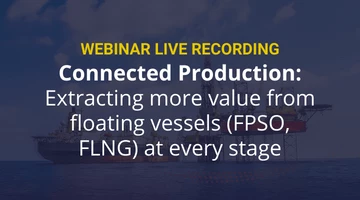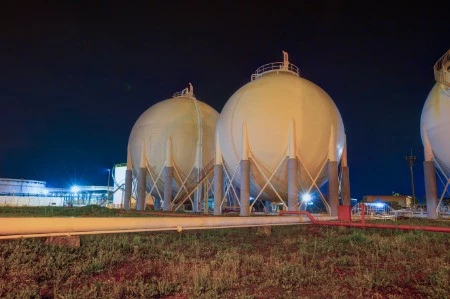Put Your Hands Together For The FDPSO, The Future Of Offshore Oil
Add bookmarkA Voyage Of Discovery In A Sea Of Possibilities
In 2009, Arkansas-based energy company Murphy Oil embarked on a pioneering venture when it began production from its Azurite field in the Republic of Congo using a floating drilling, production, storage and offloading unit (FDPSO).
Located in 4,500 feet of water and boasting both pre-salt and post-salt prospects, the Azurite field is in some ways characteristic of the latest oil discoveries being targeted across the globe – deeper, further offshore and presenting more isolated.
The development of the Azurite FDPSO, which brought together players including Prosafe, Nabors Industries and DNV among others, was a world first, and marked the beginning of a new phase for the development of deepwater resources, allowing companies to both maximise production and minimise the cost of exploiting their reserves.
A new phase for the oil & as Industry
Conversion of the Azurite began in 2007 and came to a close in February 2009. Now operational, it has the ability to store 1.4 million barrels of oil and process 40,000 barrels of crude per day.
Reidar Lunde, head of engineering and construction at Prosafe Production Services, explained: "When the Azurite left Singapore’s Keppel Shipyard for West Africa, a new era of oil and gas production began, as it became the first self contained vessel with the ability to drill several wells within the first three years after its arrival on location."
[eventpdf]
Brand new technology
As a world-first project, the development of the FDPSO was by no means without its challenges, and members of the upstream industry with separate areas of expertise were required to collaborate on technological developments which had never been achieved before.
Johan Gardin, the head of DNV’s Offshore Classification department in South East Asia, said: "Challenges that required solutions during the conversion and classification processes included the physical arrangement of adjacent process and utilities modules with their associated structures, such as piping and abling. Mitigating the effect of motion was also necessary."
However, now complete and operating, the rig is essentially a template for further FDPSO developments to build upon as the oil and gas sector digs deeper for hydrocarbon deposits.
Growing Demand for FPSOs
The demand for conventional floating production, storage and offloading (FPSOs) vessels is also on the rise.
Figures from International Maritime Associates (IMA) shows there are now 250 units operating on oceans the world over, compared to just 120 a decade ago. FPSO stock is expected to increase by 20 per cent in the coming years as 190-odd oil and gas projects in development will likely require mobile units to come online.
The deepwater reserves in Brazil and West Africa in particular are contributing to this growth, with Africa accounting for 35 of the upcoming deepwater projects, a number of which are located in ultra deepwater regions.
FPSOs - an African energy success story in the making
Noble Energy recently began production from the Aseng field in Block I offshore Equatorial Guinea to the FPSO, with the first oil lifting from the vessel expected in December. The project, sanctioned in 2009, was completed seven months ahead of schedule and was brought in 13 percent below budget.
Commenting at the time the project was launched, Minister of Mines, Industry, and Energy for Equatorial Guinea, H E Marcelino Owono Edu, said: "The approval of the Aseng Plan of Development will help Equatorial Guinea to accelerate its plans for the regional utilisation of gas and oil.
"The Ministry recognises the important part the Noble Aseng Plan of Development will play in the development of a regional gas hub."
Kosmos Energy has also deployed an FPSO above Ghana's Jubilee field, which is currently producing oil at a rate of 80,000 barrels per day.
With the IMA figures suggesting deepwater resources, including those in West Africa, will be producing as much as 14 million barrels of oil equivalent per day by 2030, demand for FPSOs seems only likely to head in one direction.





















